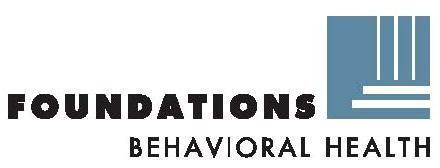
Where
La Salle University - Union Building1900 West Olney Avenue
Philadelphia, PA 19141
Driving Directions
Contact
Conference Manager
(609) 518-1259
conference@eventmood.com
lavinia.awosanya@gmail.com
(Please send message to both email addresses above)
Conference Highlights
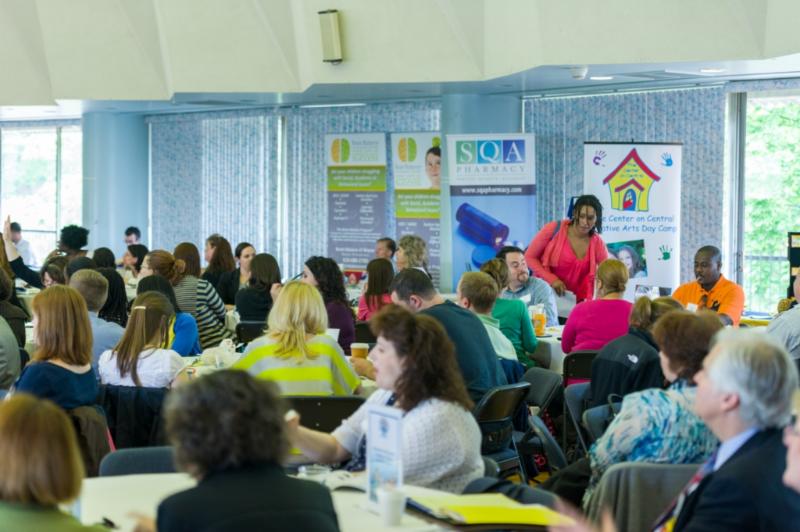
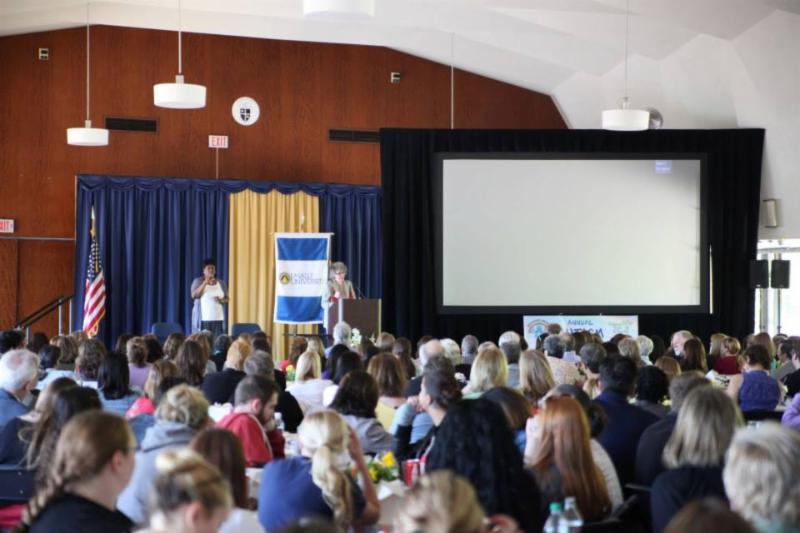
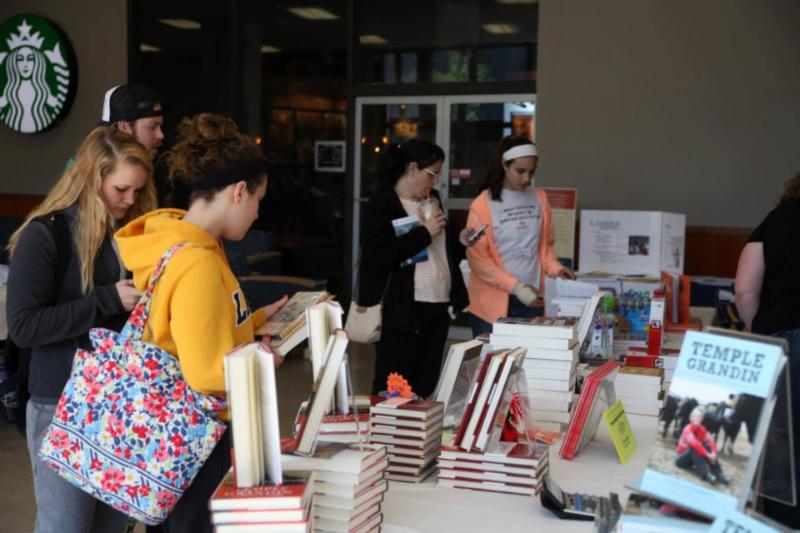
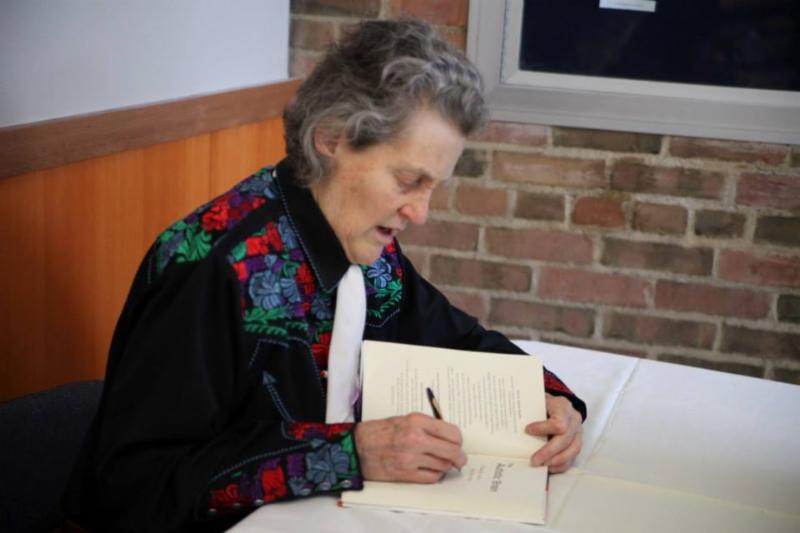
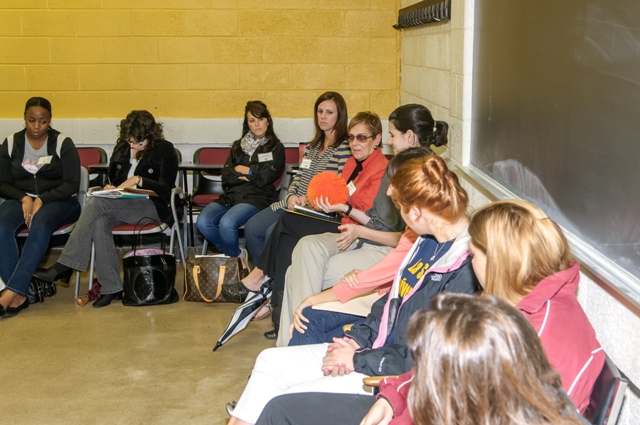
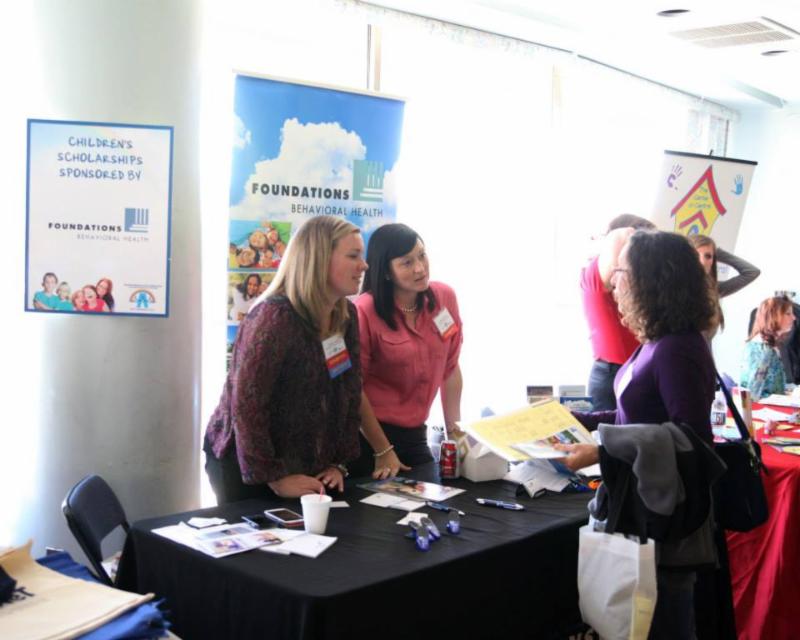
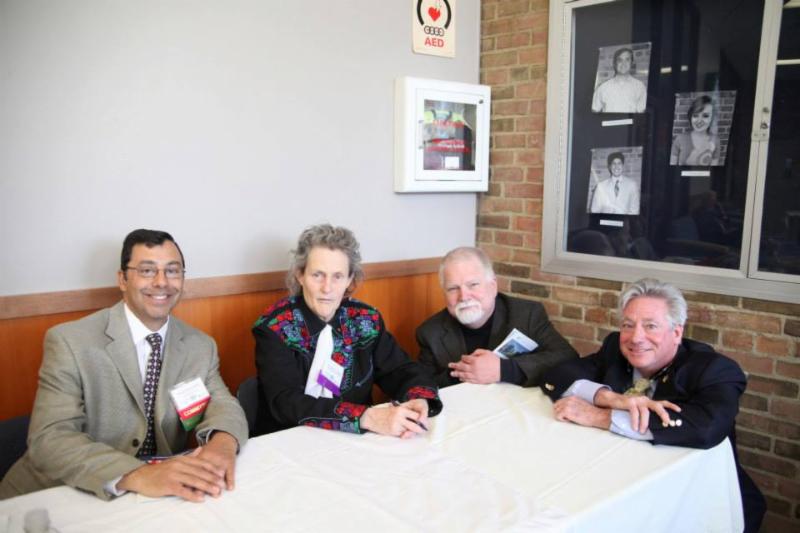
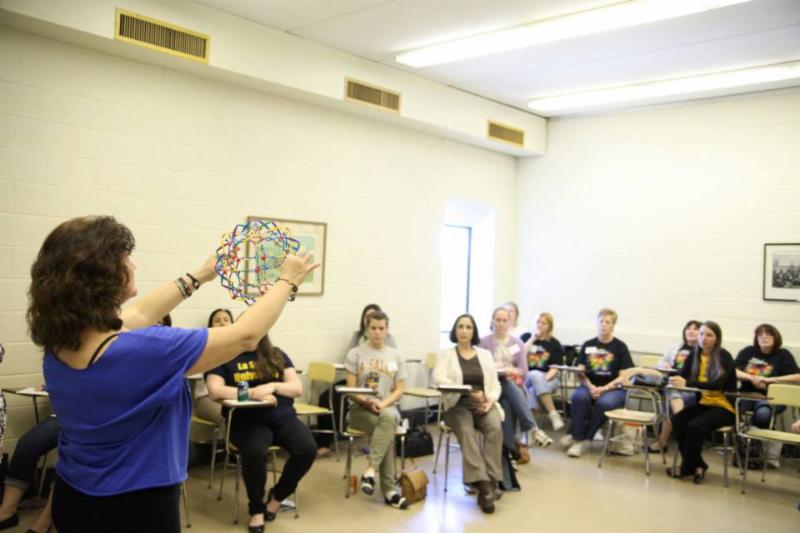
Rebecca Watkins
Make all checks payable to Foundations Behavioral Health
Conference Schedule
8:00 - 9:00 a.m. Registration Union Lobby
9:00 - 10:30 a.m. Keynote Session Dan Rodden Theatre
10:30 - 10:40 a.m. Break Union Lobby
10:45 - 12:15 p.m. Workshops Various Locations
12:30 - 1:30 p.m. Lunch Ballroom
1:45 - 3:15 p.m. ASD Law and Advocacy Roundtable Dan Rodden Theatre
Workshops: 10:45 a.m. - 12:14 p.m. (Attendees can only attend one of these workshops)
Workshop 1: Special Education Law: Increasing Access for Individuals with ASD
Presenter: Jennifer McLaren, Psy.D., Green Tree School and Services
Workshop Description: This presentation will review PA laws and best practices for students with ASD. Topics covered include: psychological evaluation/re-evaluation reports, classroom placements, appropriate IEP goals, functional behavioral assessments and behavioral intervention plans, special education services, and transition services. Participants will also learn tips about appropriately advocating on their child’s behalf.
Workshop 2: Community Partners and Inclusion
Presenter: Wendy Ross, MD, FAAP
Workshop Description: True inclusion relies on clinicians and families partnering with community organizations to build bridges. Community organizations can provide insight into their structures that will enable clinicians and those affected by autism to construct scaffolding for supported participation. Without this partnership, it is hard to imagine the destruction of barriers to participation and the creation of mutually beneficial bridges that lead to community independence. This panel will highlight key contributions for success in the community.
Workshop 3: Psychiatric Illness in ASD: prevalence, treatment and impact on successful transitions.
Presenter: Manely Ghaffari, MD
Workshop Description: This workshop will be an overview of psychiatric illnesses that co-occur in ASD from childhood to adulthood, focusing on prevalence of the disorders and available pharmacological treatments, including their benefits, side effects and long-term risks. The potential impact of these illnesses and their treatments on transitions will be reviewed.
Workshop 4: Accessing and Navigating Autism bed-based care
Presenter: Craig Ginsberg, MD, Jesse Menarde, Abigail Halloran, Foundations Behavioral Health
Workshop Description: This workshop is designed to:
• Highlight what we have found to be successful elements of bed based care.
• Explore and help problem solve systemic flaws in accessing care.
• Discuss the role of successful collaboration between team members to improve outcomes
Workshop 5: Navigating systems of care to prevent behavioral crises: Perspectives from parents and professionals, and paths for program growth
Presenter: Peter Doehring, Ph.D., Director, ASD Roadmap
Workshop Description: Behavior problems can have an enormous impact on the quality of life of people with ASD and their family, and can lead to crises that result in injury, over-medication, hospitalization, and residential placement. In this presentation, we explore why such crises still occur, even though we already possess much of the knowledge and many of the resources needed to prevent many behaviors from deteriorating. By describing the story of an easily averted behavioral crisis from the viewpoint of the caregiver and the professional, we help each to appreciate the barriers faced by the other, and transform suspicion and blame to understanding and collaboration. The story also helps us to identify critical points in the path to crisis that advocates can address through better coordination of services, and targeting of training, research, and policy initiatives.
Workshop 6: Ideas about IDEA and Other Ideas: Educational Rights and Transitions for ASD
Presenter: Felicia Hurewitz, Ph.D.
Workshop Description: In this session, we will discuss educational rights with regard to transition under the Individuals with Disabilities Act (IDEA) and section 504 of the Rehabilitation act of 1973. This will include a brief overview of caselaw pertaining to transition litigation under these laws, which reflects how the courts interpret challenges to a Free and Appropriate Education based on deficits in transition evaluations or programming.
Workshop 7: Building Social Skills and Friendships Through Activity Groups
Presenter: Thomas Latus, Ed.D., Robyn N – Grade 5 student, Daviana C – Grade 5 student
Workshop Description: This workshop reports on how activity groups of peers – both neuro-typical and atypical – can lead to stronger social skills and build friendships. This workshop will focus in depth on “The Advocates”, a group of 4 to 6 students that is now in its fourth year. The original rationale for the group was to help a student with ASD who has a passion for social justice channel her interests and concerns into real-world projects that would engage her classmates in cooperative activities and reflective discussions. The workshop will describe these activities and the two co-presenters (Grade 5 students who are founding members of “The Advocates”) will share how these projects have impacted their lives and their relationships. The workshop will also report on other activity groups: “The Culinary Club,” “The High School Mentoring Discussion Group,” and “The Pet Photo Contest.”
Workshop 8: Up, Up, and Away…Practical Solutions for School and Community
Presenter: Joanne Conners- Behavior Specialist Consultant, Steven Detweiler M.S. Sp. Ed.- Director of Education at Foundations Behavioral Health, Ed Hayduk M.S.- Psychologist in BHRS Department at Foundations Behavioral Health, Bridget Siess M.S. Sp. Ed- Senior Associate/ Lead Teacher LifeWorks Academy
Workshop Description: This is a two part workshop which includes a presentation and panel discussion. Participants will learn valuable, practical interventions and strategies in managing behavioral and social communication challenges across all settings. Using real life scenarios, this workshop will demonstrate the how to(s) when it comes to finding success and hope.
Workshop 9: Family Systems Navigating the Risks Around Autism
Presenter: Dr. Donna Tonrey, La Salle University
Workshop Description: This workshop will review the theory behind family systems, the structure of a family, and the boundaries within a family system. Through the lens of a system perspective, the workshop will focus on reducing risks to the health of the family system when a family is experiencing the reality of autism.
Workshop 10: ASD Under Siege: Tragedy, Resiliency, and Solutions
Presenter: Eric Mitchell, PhD, facilitating, with Mike Trask, Philadelphia Police
Workshop Description: Philadelphia Police Officer Mike Trask lost his autistic son to drowning in their backyard pool, but was able to revive him after 17 minutes. Mike will share his poignant story, and with Dr. Mitchell, explore how families, schools, and communities can work to mitigate risk factors, promote resiliency in our children, families, and schools, and promote successful transitions toward a healthy and productive life on the spectrum. Issues of bullying, abuse prevention, community partnerships, advocacy, and other related topics will also be explored.
Keynote Speaker: Dennis Debbaudt

Autism Related Law Enforcement and Public Safety Interactions: Manage the Risks
Session Goals & Objectives:
1. Recognize social, communication, behavioral and sensory risks for persons with autism
2. Become familiar with the high risks associated with a wandering incident
3. Discuss autism emergency disclosure options: ID cards, 911 registries, and field disclosure
4. Identify trends of victimization of persons with autism
5. Become aware of partnership opportunities for autism, law enforcement, public safety and criminal justice communities that lead to informed, safe and fair interactions for all concerned.
Biography
Dennis Debbaudt is the proud father of Brad, a young man who has autism. A professional investigator and journalist since 1977, Dennis turned his attention to autism spectrum conditions in 1987 after receiving his son’s diagnosis. He's since authored or co-authored over 35 articles, books and chapters including the 2002 book Autism, Advocates and Law Enforcement Professionals: Recognizing and Reducing Risk Situations for People with Autism Spectrum Disorders the 2001 report Contact with Individuals with Autism: Effective Resolutions for the FBI Law Enforcement Bulletin, Autism in the Criminal Justice System in 2009 and Autism: Managing Police Field Contacts for the International Association of Chiefs of Police, published in June, 2013. As managing partner of Debbaudt Legacy Productions, LLC, Dennis produced and wrote the scripts for the training videos Autism & Law Enforcement Roll Call Briefing (2004), Autism, Fire-Rescue and Emergency Medical Services Video (2009) and Autism in the Criminal Justice System (2009).
Over the past 19 years, Debbaudt has trained and developed training materials for law enforcement, first response and criminal justice professionals throughout the United States, and Canada and in Australia, Iceland, New Zealand and United Kingdom.
Professional Development Credits 
The following credits will be offered: APA, NBCC, SW, MFT & PC (5.5 Hours)
Credits will be available approximately three (3) weeks following the conference. If you need professional development credits, please make that selection when you register for the conference. In order to award credits, we must verfiy that you attended the entire conference. Therefore, please complete an evaluation form for the workshop you attend as well as an evaluation form for the entire conference. Partial credits will not be awarded. Late arrival or early departture will preclude awarding of CE credits.
ACT 48 Credits WILL be offered, courtesy of sponsor Elwyn Seeds!

Certificate of Attendance
A certificate of attendance will be available at the conclusion of the conference.
Directions to La Salle University (Click Here)
Designated Parking Lot: Central High School
To Central High School Lot
Make a right turn onto Ogontz Avenue (bear right of the Sunoco station). Follow Ogontz Avenue to Olney Avenue (third traffic light). Make a left turn onto Olney Avenue, and the driveway entrance to the Central High School lot is approximately 100 feet on your left.

